The
Wild Bunch
1969
Director: Sam Peckinpah
Starring: William Holden, Ernest
Borgnine, Warren Oates, Robert Ryan
In
general, I don’t like Westerns, but Peckinpah?
Peckinpah is a whole other ball of wax.
My first introduction to Peckinpah was Monty Python’s “Sam Peckinpah’s
‘Salad Days,’” which still remains one of my favorite MP sketches, and it’s
become even funnier since I’ve partaken of Peckinpah’s filmography. With a reputation, rightly earned, for
violence and cynicism, Peckinpah’s vision of the West differs vastly from that
of, say, classic western director Ford. The
Wild Bunch is Peckinpah through and through, with plenty of
stylistically innovative violence and themes running deep with betrayal and
pessimism.
Telling
a fairly standard story of outlaws looking for one more score, we follow Pike
Bishop (Holden), an aging outlaw who wants to retire as the twentieth century
dawns in the American West. With his
colleague Dutch (Borgnine) at his side and old frenemy Thornton on his trail
(Ryan), Pike gets entangled with Mexican bandit-turned-generalissimo Mapache
(Emilio Fernandez) when they make a deal to steal some guns for him. As the deal starts to go bad and tensions run
high, we understand the bleakness of Peckinpah’s vision.
“It
ain’t what it used to be, but it’ll do.”
This is the closing line of The Wild Bunch, and it succinctly
sums up a major thematic element of much of Peckinpah’s work. Weeping for a Wild West that had become far
too idealized in previous films and television shows to have been real,
Peckinpah seemed intent in his work to move that image forward. In The Wild Bunch, he certainly does
that, showing us a western landscape littered not with heroes and villains
representing right and wrong, but characters who live somewhere along a
spectrum of virtuosity. Pike is our
hero, for lack of a better term, but he opens the film by pretending to be a
soldier in order to take part in a daylight raid of a bank in Texas, one that
winds up killing many people. And the
phrase “Honor amongst thieves” only goes so far in Peckinpah’s world, for many
of the thieves aren’t honorable in the least.
People get left behind or abandoned constantly. The man hunting Pike is doing is only for
bounty and he is surrounded by some of the most unlikeable and ruthless
characters in the entire film; yet this man is on the “right” side of the
law. Generalissimo Mapache is the
closest we get to a true villain in The Wild Bunch, but Pike, though
wary, makes deals with him through most of the story, and Mapache himself seems
less evil than a bit stupid and power-hungry.
In short, we don’t have any traditional white hats or black hats here,
just people living by whatever code they happen to adopt, be it right or wrong
or somewhere in between. This ain’t yo’
granddaddy’s Western, that’s for sure.
Additionally,
the issue of betrayal is constantly looming throughout the story. Thornton seems continually haunted by the
fact that he finds himself hunting his old friend Pike with men he can barely
stomach. Pike and his bunch hardly care
in the slightest when their compatriot Angel’s village gets attacked by
Mapache, threatening to leave him behind if he can’t get over it. Pike’s old friend Sykes, who helps out in the
gun heist, at one point himself gets abandoned by Pike and the rest because he
was wounded. No one’s actions in The
Wild Bunch are beyond reproach; everyone, at some point, does something
fairly shitty to someone else, betrays someone they shouldn’t, leaves someone
behind whom they should have helped.
It’s a messy world, Peckinpah’s West.
This
wonderfully ambiguous morality play is wrapped up in a remarkably innovative
cinematic package. This is, in its own
gritty, dirty, disgusting way, a beautiful film. Peckinpah stylishly blends slow motion,
flashbacks, and quick cuts to present a film that is unexpected in its
technique. Watch Angel’s horse get
lassoed – we cut between a slow motion shot of the horse falling to some
quick-as-a-flash cuts to the men around him.
Just when the film feels a little too staid or predictable in its
presentation, we get these fairly exciting shots. The final bloodbath, famous for its violence,
is a prime example of this, with slow motion bodies falling all over the place,
graceful in their disfigurement.
The
general attitude of the film is resigned acceptance. Pike’s final decision seems one not born of
his sense of decency, but an unfulfilled death wish, grim in his determination
to see this thing through to the end.
Everyone around him seems to know it as well, which is why when men
start laughing as they are about to face certain doom, it all seems right,
somehow. The Wild Bunch is grim
and bleak, maybe, but never stifling or depressing. There are just enough light moments sprinkled
throughout to make the dark moments bearable.
The
cast of The Wild Bunch is strong all around. William Holden, aging out of Classic
Hollywood, plays against classic Western types here and does it well, as does
Ernest Borgnine. But for my money, it was
Warren Oates as sidekick Lyle and Robert Ryan as Thornton who really steal the
show. Oates is an actor who, after not
being able to get his Bennie from Bring Me the Head of Alfredo Garcia
out of my mind for at least a week, I can’t tear my eyes away from. If he’s in a scene, my eyes are on him. If he’s onscreen, I don’t care what else is
going on, I’m watching him. His charisma
and intensity and oddball humor live alongside a sense of sadness and
inevitably which Peckinpah must have adored.
Similarly, Ryan’s defeated Thornton is probably my favorite character
from the film as we watch him almost sadly track down Pike. It’s never certain where Thornton really
stands, and that’s mostly due to Ryan’s performance, keeping the character just
a shade unknowable. If I could change
one thing about The Wild Bunch (although really, why would I want to mess with
a classic?), it would probably be to do more with the Thornton/Pike angle.
It’s
movies like The Wild Bunch that made me realize that there are always
exceptions to the rule. While it hasn’t
changed my mind about Westerns as a whole, I willingly make an exception for
it.
Arbitrary
Rating: 8/10
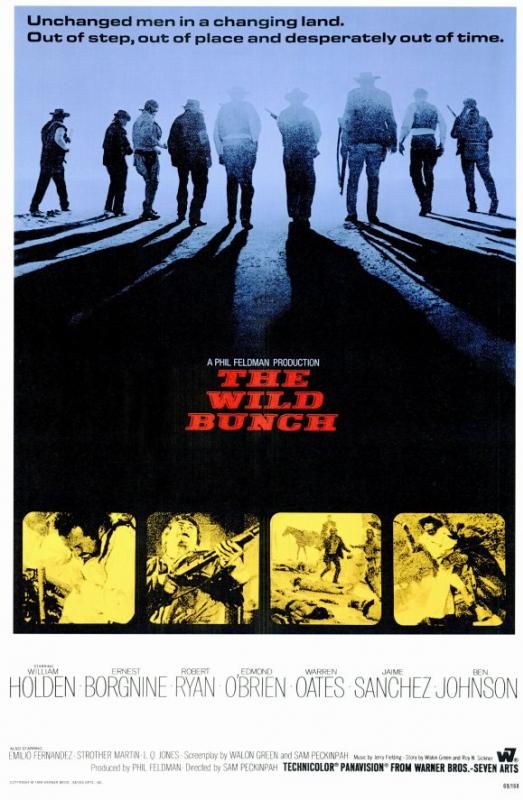
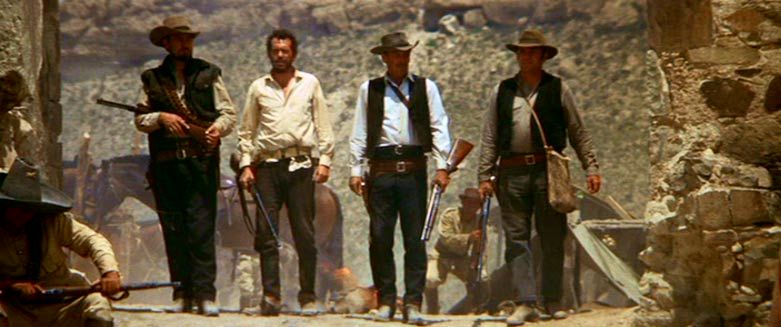
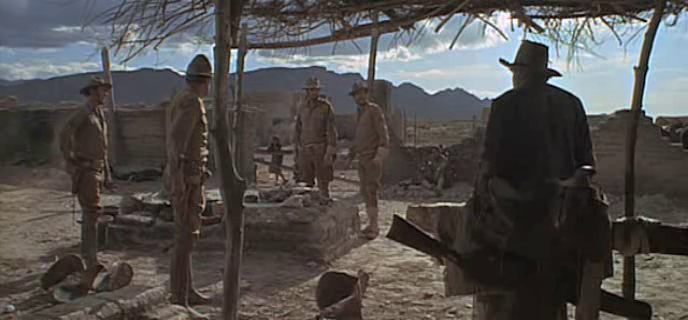
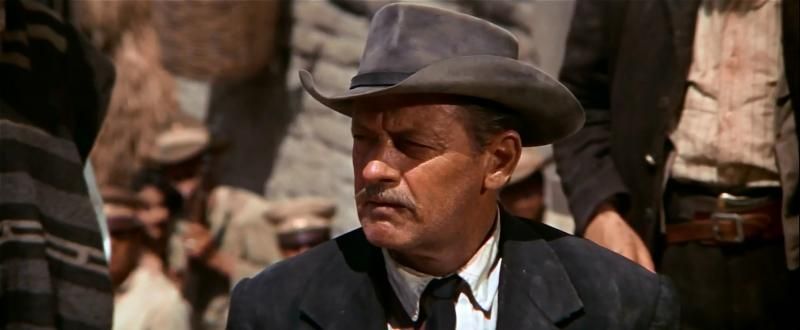
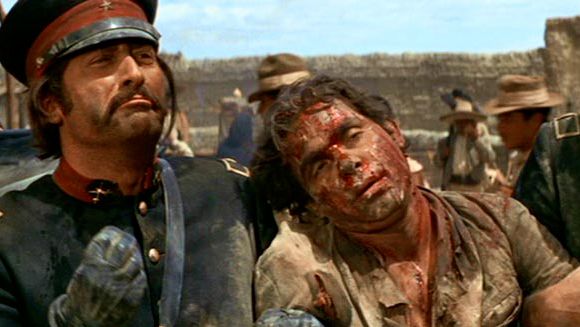
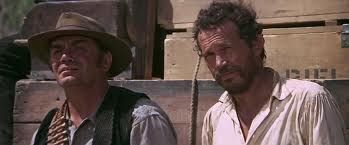
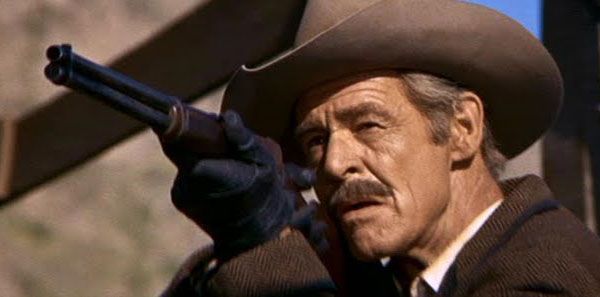
I used to dislike Westerns in general. I've learned to simply look at them as action films with horses. Seriously, it makes a difference.
ReplyDeleteThis one is damn fine, call it Western, action, or what you will. Then again, I have a soft spot for Peckinpah. When he made a smart movie, he made them as smart as anyone.
"action films with horses" does little to entice me to like westerns. Action films tend to be one notch above westerns in my general estimation.
DeleteLike I mentioned, Peckinpah is so good. Some of his works have really left lasting impressions on me.
I saw this 10-12 years ago because it was in the IMDB Top 250. I knew nothing about it prior to seeing it. I liked it quite a bit. I remember the rising tension from "the walk" towards the end of the film. I found out afterwards the film is famous for that build up and that it was purely an invention on the day of filming by Peckinpah.
ReplyDeleteI didn't know that was a day-of thing. Very cool. I knew little about this the first time I saw it as well, and ended up being impressed with the end too. How could you not? It's a great ending.
DeleteThis is another one I've been avoiding for years because of my wimphood. Glad to see you liked it. I love Robert Ryan so that's one reason to see it sooner rather than later.
ReplyDeleteI've realized that I really love stylized film making, and Peckinpah makes stylized Westerns. That's probably what I respond to the most in his stuff. I definitely recommend The Wild Bunch. In terms of the violence, this was 1969, so the violence does feel fake compared to today's horrible, gory standards. There is SOME violence, but it's not the focus. Even if you need to close your eyes due wimpihood (something I am not above doing, by the way), you're really not going to miss much in this film. Although it has a reputation for being a violent film, that was a reputation garnered in 1969.
Deleteyeezy boost 500
ReplyDeletekyrie 4 shoes
yeezy boost 350
balenciaga
yeezy boost 350 v2
jordan 11
moncler jackets
kd 12
air max 90
air jordan
Telling a fairly standard story of outlaws looking for one more score, we follow Pike Bishop (Holden), an aging outlaw who wants to retire as the twentieth century dawns in the American West. With his colleague Dutch (Borgnine) at his side and old frenemy Thornton on his trail (Ryan), Pike gets entangled with Mexican bandit-turned-generalissimo Mapache (Emilio Fernandez) when they make a deal to steal some guns for him. As the deal starts to go bad and tensions run high, we understand the bleakness of Peckinpah’s vision.
ReplyDeletewholesale salwar suit ,
wholesale salwar kameez dealers ,
m5r77j9j05 t9h36l7i31 j8w07q6u50 o8x34b0y01 i9z39a7q15 a9d65r3e25
ReplyDeletefear of god
ReplyDeletenike dunks
kd shoes
hermes
palm angels
off white clothing
off white
bape hoodie
supreme
golden goose outlet
nxju5529kkfz
ReplyDeletesupreme outlet
golden goose outlet
golden goose outlet
golden goose outlet
golden goose outlet
golden goose outlet
golden goose outlet
golden goose outlet
golden goose outlet
golden goose outlet